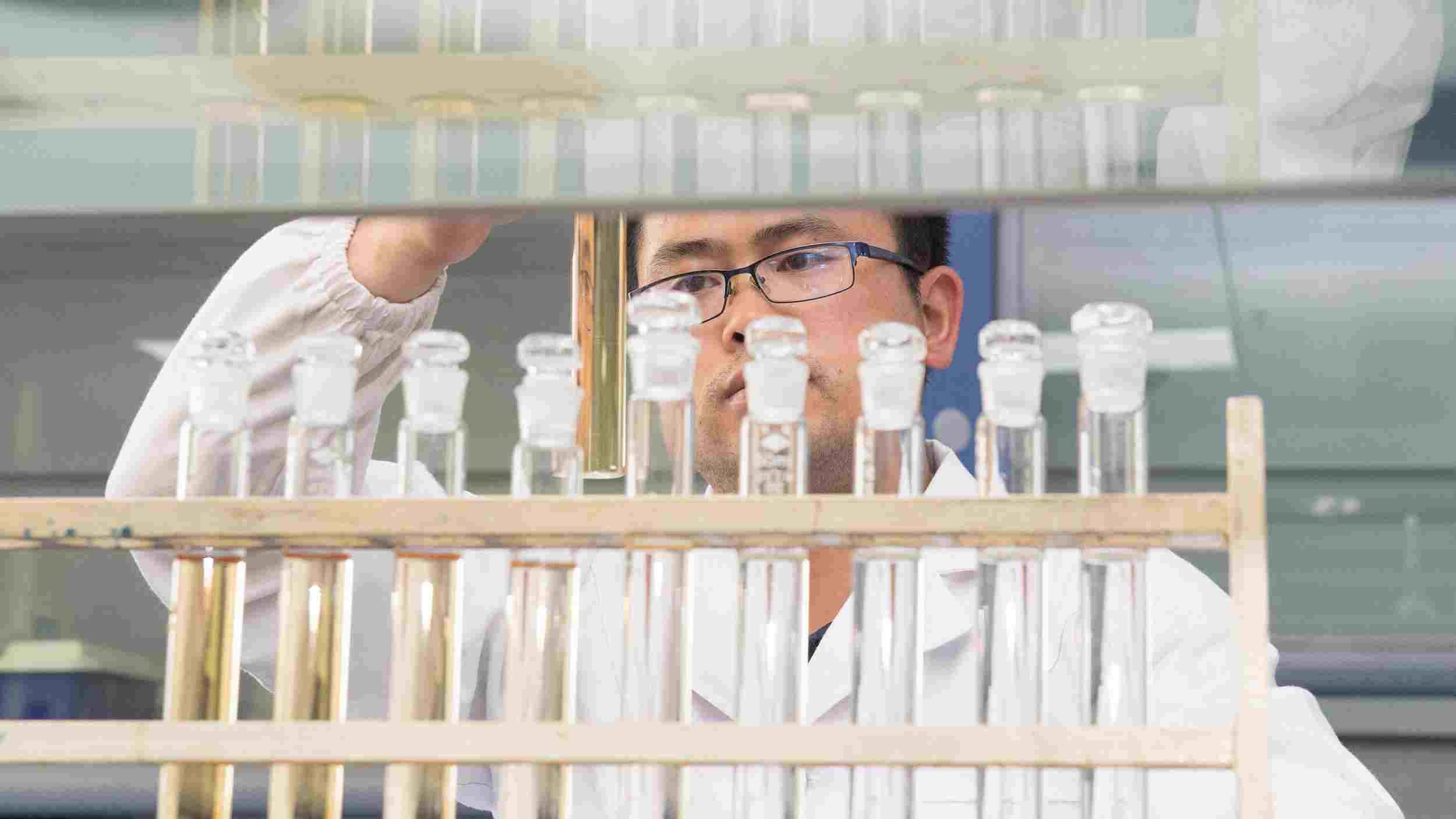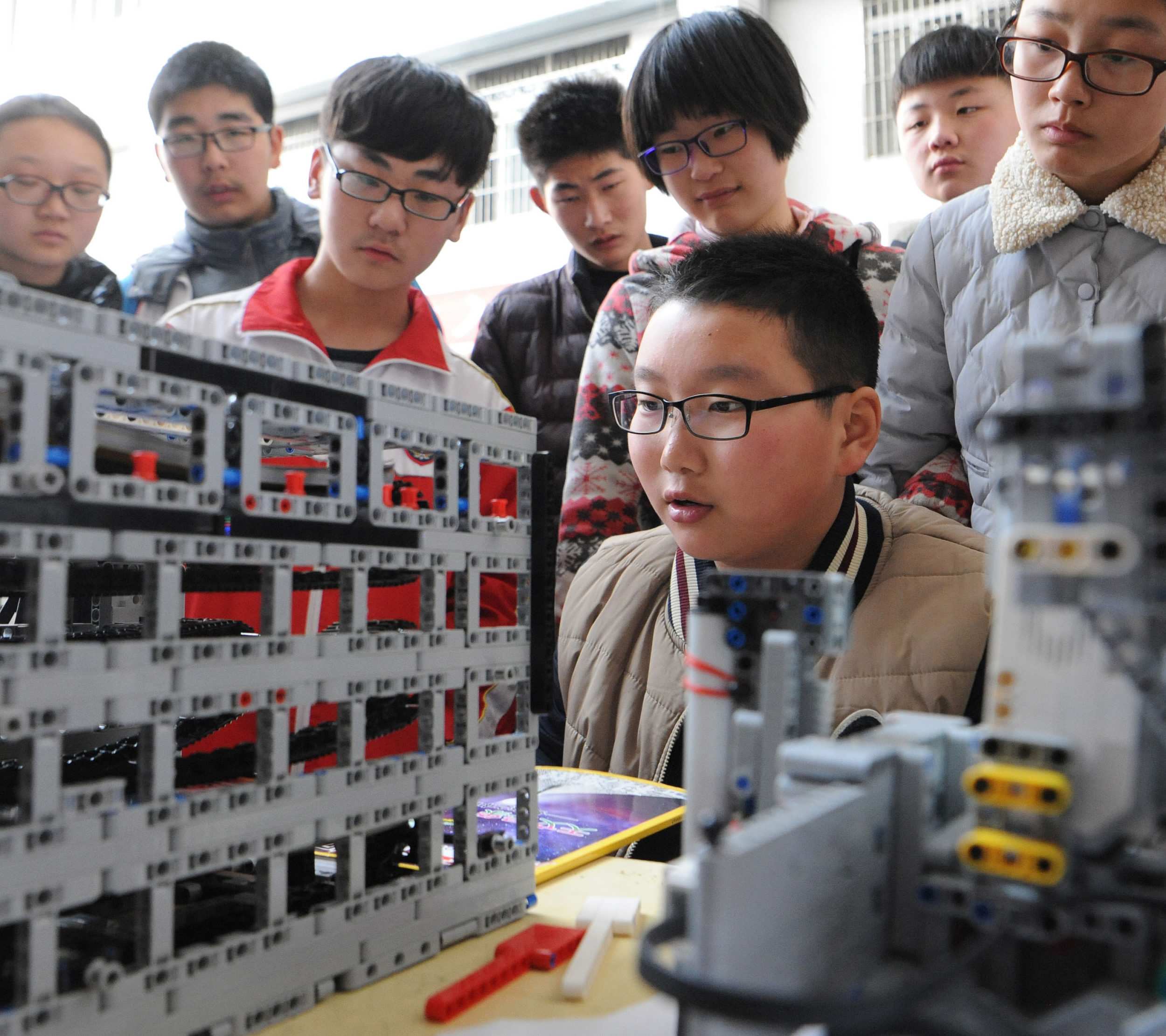
Tech & Sci
14:40, 17-Jul-2017
Quantity or quality: Is the cash reward system affecting the quality of China's scientific research?

With great fanfare, Sichuan Agricultural University celebrated a month ago the success of a group of its researchers for a publication in Cell, one of the world’s leading peer-reviewed journals.
Led by Professor Chen Xuewei, the team's breakthrough work is about the possible cure for the deadly rice fungus known as rice blast. According to Li Ping, director of the university's rice research institute and a co-author of the published paper, their discovery could help countries around the world to secure their food supply.
The university has every right to be excited.

VCG Photo
VCG Photo
But instead of the credibility of the work, what made headlines around the world is the size of their reward: 13.5 million yuan (2 million US dollars), the biggest ever to a Chinese team for a paper in an international journal. This equates to about double the amount last year's Nobel laureates received.
To answer the social media chatter about the reward, Li clarified that most of the money – 13 million yuan – was actually for grants towards future research. Only the 0.5 million yuan extra was a prize that is being split among 27 people.
Li further justified the prize by saying in his blogpost that researchers at small universities in China have difficulty getting stable grants, so funds such as those provided by the university are crucial for groups like his to continue their promising research.
China's cash-for-papers policy
The news of this big reward called for a review of the China's cash-for-papers policy. Aside from ethical issues, a recent study has questioned whether the reward system creates a culture in which scientists look at their research as a means to make quick cash instead of considering the best way to pursue and expand experiments.
According to the study led by Chen Bikun, an associate professor at Nanjing University of Science and Technology's School of Economics and Management, the average reward universities give for getting published in an internationally-recognized journal rose noticeably over the past decade.

Beijing University of Chinese Medicine /VCG Photo
Beijing University of Chinese Medicine /VCG Photo
For instance, the average reward for an article published in Nature or Science rose by 67% from 26,212 US dollars in 2008 to 43,783 US dollars last year. The top figure is almost 20 times a professor's annual salary.
Quality vs. quantity
Chinese researchers churn out more than a million papers a year, more than any other country, according to the China Association for Science and Technology (CAST). About a third of these were published in journals abroad.
The quality of the research, though, is measured by how much the studies are referred to by other researchers. For Chinese papers, the rate is below the global average, according to People's Daily, as most were poor in quality with few or no citations.
In April, Springer Nature, a major international scientific publisher, retracted 107 research papers by Chinese authors after discovering problems in the peer review process. It was the single largest withdrawal of academic papers in history.
A global power in scientific research
Despite the negative implications for the payment system, there can be no doubt that it has been instrumental in raising the profile of China’s scientists on the world stage, the study said.
China has experienced exponential growth in the number of published papers in international publications over the past 20 years.
As China's research and development spending grows at an astonishing rate of 18.3% annually – a big share of that is for increasing the income of researchers – China is surely catching up in terms of quality of research output. But the gap is closing fast.

VCG Photo
VCG Photo
Last year, Chinese President Xi Jinping addressed a conference organized by the Chinese Academy of the Sciences, the Chinese Academy of Engineering and the National Congress of the China Association for Science and Technology (CAST), stressing the importance of scientific research.
"Currently, the state needs the strategic support of science and technology more urgently than any other time in the past," Xi said.
Also speaking at the conference, Premier Li Keqiang stressed that "scientific innovation needs to be boosted through institutional reform" and that "we need to acknowledge scientific researchers' contributions and learn from some developed countries that perform well in this regard."
Amid controversies over the integrity of Chinese science in general, the National Natural Science Foundation of China (NSFC) said they will maintain a policy of zero tolerance for any academic fraud.
A Xinhua report also cited CAST saying national funding will be withdrawn from the programs that will be involved in fraud incidents, and the involved authors and institutions will be barred from applying for funding.
China currently has 81 million science and technology workers regarded as the "backbone" of the country's innovation-driven development strategy.

SITEMAP
Copyright © 2018 CGTN. Beijing ICP prepared NO.16065310-3
Copyright © 2018 CGTN. Beijing ICP prepared NO.16065310-3